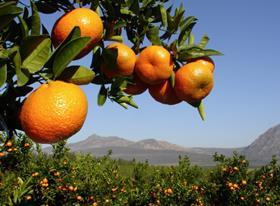
South Africa has decided to cease exports of specific types of citrus from certain regions in the country to the European Union early this season. The South African government has been asked not to inspect any more shipments of fruit from these regions after 12 September.
An industry announcement stated; 'At times in the past the South African citrus industry has voluntarily suspended certain exports to limit potential interceptions of citrus black spot (CBS) symptomatic fruit at the tail end of the season and to protect the long term sustainability of the EU market.
“Experience has shown that the prevalence of CBS interceptions increases in this period, particularly on late Valencia oranges,” it continued.
According to the statement South Africa received 12 notifications of false codling moth (FCM) interceptions from the EU and has implemented stricter measures to mitigate the risk of additional FCM interceptions.
“Although there is only one CBS interception in the EU so far this season, there is a need to also mitigate the total number of interceptions,” the statement read.
The decision was taken by the Citrus Growers’ Association’s (CGA) disaster management committee. In a notice to citrus growers, the committee said the move is a proactive and diligent intervention to demonstrate the industry’s responsible and sustainable risk mitigation.
According to the statement the intervention will be enacted through automatic withdrawal of EU registration of affected orchards on the industry’s PhytClean system, which plays a key role in orchard inspections for fruit exported to the EU.
This will mean that the certification body, PPECB, will not inspect any citrus fruit of the affected types and production regions for shipment to Europe after midnight on 12 September.
The statement stressed the CBS free areas of the Western and Northern Cape are exempt from the ruling, as well as the low risk Gamtoos and Katriver production regions in the Eastern Cape.
Mandarins and other soft citrus are also exempted as a low risk citrus type.



